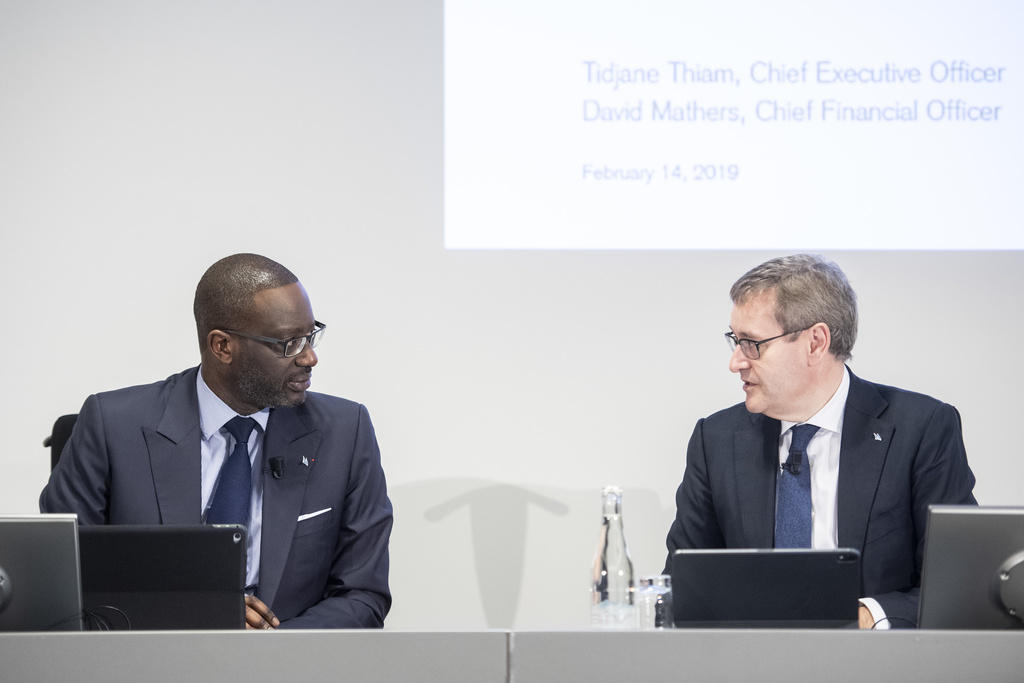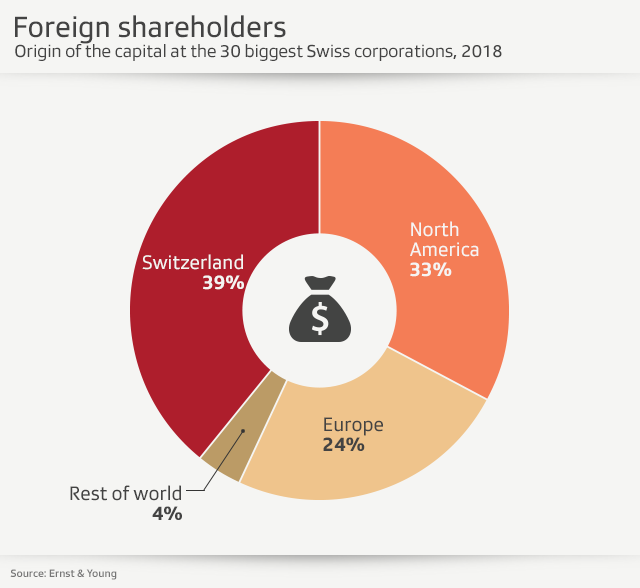Foreign investors own 60% of Swiss corporations

Global financial institutions are increasingly dominating the shareholders of major Swiss companies.
According to an Ernst & Young (EY)External link report commissioned by Swiss newspaper NZZ am SonntagExternal link, fewer than 40% of the shares at top Swiss companies are actually Swiss-owned.
The newspaper points to Swiss banking giant Credit Suisse as a prime example of a financial institution where traditional shareholder democracy is eroding fast.
Credit Suisse shares are broadly anchored in the Swiss population, with 99,500 people acting as co-owners of the bank. But at the bank’s upcoming annual general meeting in Zurich, Swiss private shareholders will barely be able to have a say as they hold only 10% of the capital.
In contrast, the seven largest Credit Suisse investors alone hold a 35% stake. They bear names such as Harris Associates, Olayan Group, Dodge & Cox or Silchester – so-called institutional shareholders who manage enormous wealth and are practically unknown to the public.
At Credit Suisse, 82% of these professional investors come from abroad, while only 18% are domestic, according to the report published on Sunday.
Global investors
The phenomenon is not limited to the financial sector. In most corporations, major global investors have greatly expanded their power.
This was the first time that consulting firm EY examined the ownership structure in Switzerland’s top 30 companies. Whereas 42% of shares were Swiss-owned in 2012, by 2018 the figure was down to 39%.

“The strong commitment of foreign investors shows the attractiveness and global networking of our economy,” says Tobias Meyer, responsible for the EY study.
Meyer considers these to be mostly stable participations and considers the slogan “sell-out out of the economy” to be wrong.
“In addition, these shareholders take entrepreneurial risks from which the entire economy ultimately profits,” he says. “The open capital market is a competitive advantage for the country.”
Anglo-Saxon influence
But how does the dominance of global investors change the management culture in corporations?
The Anglo-Saxon influence on corporate governance is clearly noticeable, says Vincent Kaufmann, director of the Ethos Investment Foundation, which represents the interests of some 220 Swiss pension funds.
This applies to the sensitive issue of manager salaries. “Excessive bonuses are judged much more critically by domestic shareholders. In principle, we reject salaries above CHF10 million ($10 million) because they do not reflect the spirit of our social partnership,” he told the NZZ am Sonntag.
For foreign major shareholders, the wage level is usually secondary provided formal processes are observed.
Kaufmann’s assessment is supported by scientific studies. The more the company is owned by institutional investors, the higher manager salaries will be, according to a 2016 study by the universities of Yale and Barcelona.

In compliance with the JTI standards
More: SWI swissinfo.ch certified by the Journalism Trust Initiative













You can find an overview of ongoing debates with our journalists here . Please join us!
If you want to start a conversation about a topic raised in this article or want to report factual errors, email us at english@swissinfo.ch.